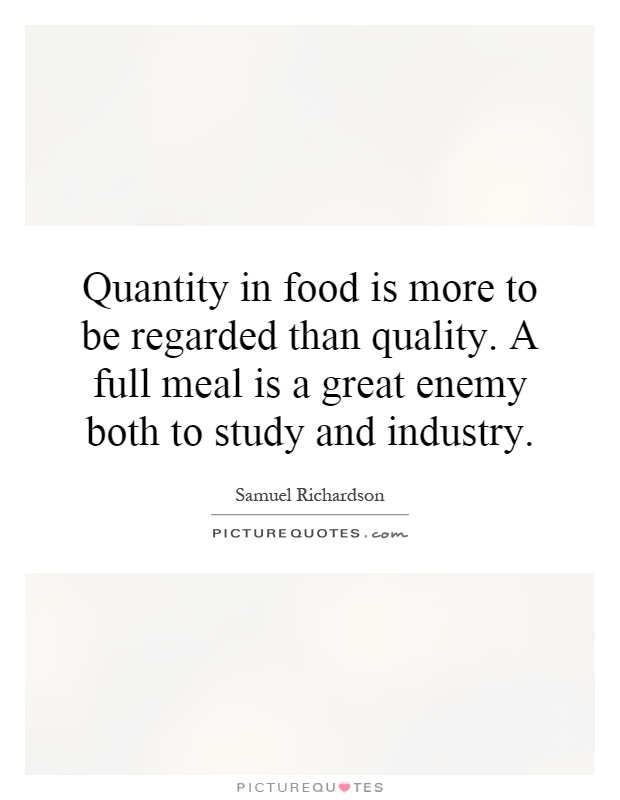Quantity in food is more to be regarded than quality. A full meal is a great enemy both to study and industry

Quantity in food is more to be regarded than quality. A full meal is a great enemy both to study and industry
In the context of Samuel Richardson, the statement "Quantity in food is more to be regarded than quality. A full meal is a great enemy both to study and industry" holds significant relevance. Richardson, an English writer known for his epistolary novels such as "Pamela" and "Clarissa," often explored themes of morality, virtue, and self-discipline in his works. The idea that excessive consumption of food can hinder one's ability to focus on intellectual pursuits and productive work aligns with Richardson's emphasis on self-control and moderation.In Richardson's novels, characters are often faced with moral dilemmas and must navigate complex social situations with integrity and grace. These themes of self-discipline and restraint are reflected in the statement about the detrimental effects of overeating on one's ability to study and work diligently. Richardson's characters are portrayed as individuals who must overcome personal weaknesses and temptations in order to achieve their goals and maintain their moral integrity.
Furthermore, Richardson's emphasis on the importance of self-improvement and personal growth is also reflected in the idea that quality should be prioritized over quantity when it comes to food consumption. By focusing on the nutritional value and overall quality of the food they consume, individuals can better support their physical and mental well-being, enabling them to pursue their intellectual and professional endeavors with greater focus and energy.












 Friendship Quotes
Friendship Quotes Love Quotes
Love Quotes Life Quotes
Life Quotes Funny Quotes
Funny Quotes Motivational Quotes
Motivational Quotes Inspirational Quotes
Inspirational Quotes